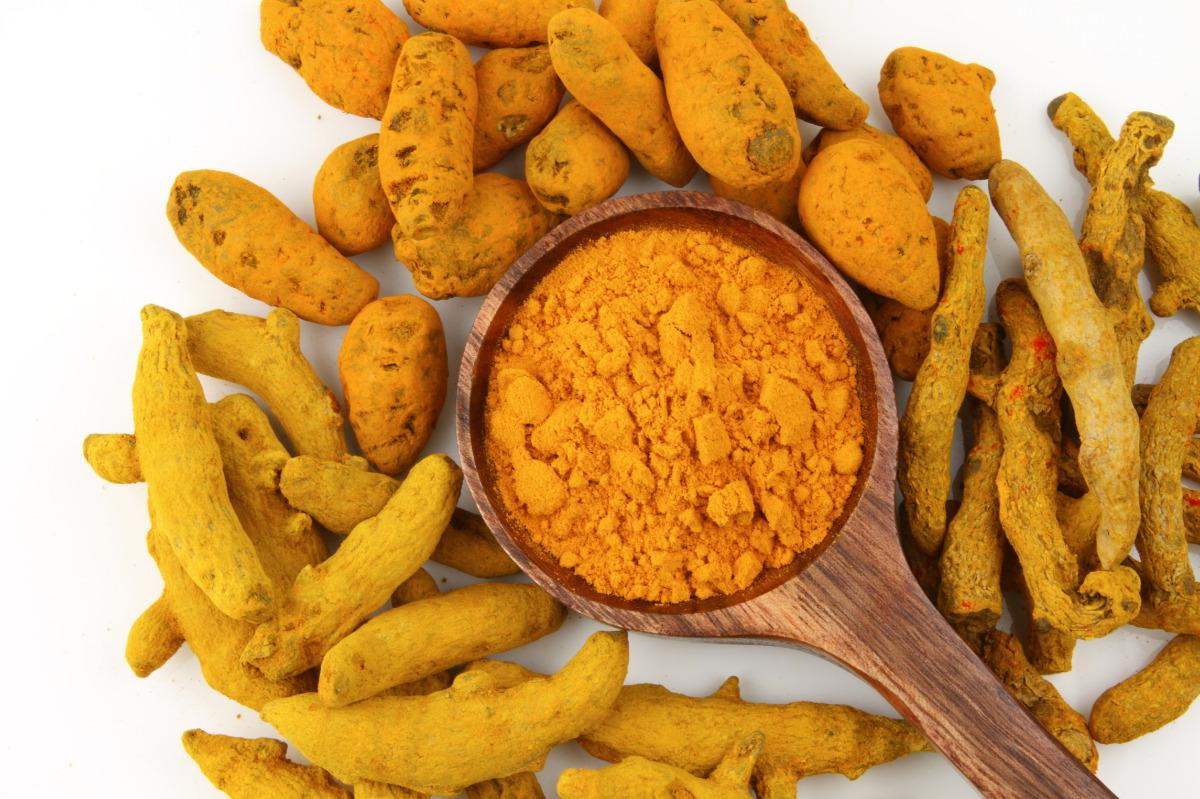
Perhaps you’ve heard of the benefits of Turmeric and its main active ingredient Curcumin. If not here’s the low down. Turmeric is a South Asian deep yellow spice that comes from the underground stem of a ginger-like plant, aka Indian saffron. Turmeric/Curcumin is proven to be one of the strongest natural anti-inflammatories there is. In fact, it goes up against non-steroidal anti-inflammatories (NSAIDs like Ibuprofen, Aspirin, Tylenol ) evenly but with less possible side effects (e.g. liver disease, kidney disease, ulcers, increased risk of stroke, etc.) As well as being an anti-inflammatory, Turmeric increases the antioxidant capacity of your body by stimulating the production of your bodies to own antioxidant enzymes. This one-two punch helps protect against oxidative damage from free radicals which can be linked to aging, cancer, heart disease, and dementia. For optimal absorption, Turmeric should be taken as a supplement with Bioperine (another name for piperine which increases absorption by up to 2000%). The recommended dosage is 500mg twice daily not to exceed 2000mg. Turmeric is meant to be a daily supplement so results are usually not immediate until levels have built up in your system (up to a month). Commonly used for inflammatory joint pain associated with acute and chronic joint injuries, osteoarthritis (wear and tear arthritis), rheumatoid arthritis, and even upset stomachs. Please read the possible side effects of turmeric below before taking it on a consistent basis. I take Nutrigold’s Turmeric Curcumin Gold with Bioperine.
Simply Nutrition in Twelve Bridges has a great selection as well, with the bonus of being able to ask lots of questions.
More/larger human studies are needed but I find the following exciting: Turmeric shows promise in helping with cancer by reducing angiogenesis (growth of new blood vessels to supply the cancer cells) as well as contributing to the death of certain cancers (especially of the digestive system). It may be useful in treating Alzheimer’s (most common form of dementia) because it crosses the blood-brain barrier and its anti-inflammatory effects help with oxidative damage in the brain. Also, in the lab, it has been shown to help clear protein tangles called amyloid plaques that cause dementia. Turmeric is thought to boost Brain-Derived Neurotrophic Factor which is linked to improved brain function and lowers your risk of brain disease. Your risk of heart disease can also be reduced because Turmeric improves how the endothelium works, regulating blood pressure and clotting, along with its anti-inflammatory and antioxidant properties. (Now of course if you are on medications for any of the above conditions please consult with a physician before taking turmeric.) As chronic inflammation plays a role in most western diseases it is easy to see how supplementing with turmeric can be beneficial.


Possible Side Effects
*Turmeric may slow blood clotting, which can be of concern if you are taking any blood thinning medications or blood thinning herbal supplements (aspirin, ibuprofen, warfarin, naproxen, angelica, clove, danshen etc.). So, it is always important to check on the side effects of over-the-counter (OTC’s) , prescription medications, and herbal supplements to make sure there aren’t any compounding/combining effects. (Why you don’t want to take pain medication/muscle relaxers with alcohol because they are all central nervous system depressants and can multiply these effects.)
*You should also stop taking turmeric two weeks before any surgeries because of its possible blood thinning qualities.
*Turmeric may lower blood sugar, which is good but might not be if you are on diabetes medications. The two together may cause your blood sugar to fall to low, leading to hypoglycemia.
*The National Institutes of Health (NIH) recommends that you avoid turmeric if you have gall bladder problems. If you have gall stones or a bile duct obstruction, turmeric may cause your condition to worsen.
*The NIH recommends that turmeric be avoided during pregnancy because it may stimulate the uterus or promote a menstrual period. They also recommend not taking while breast feeding.
*Turmeric may cause increased stomach acid when taken with antacid medications like Tagament, Pepsid, Zantac, Nexium, Prevacid. Although research shows that turmeric is an effective treatment for an upset stomach, it can worsen some cases of gastroesophageal reflux disease (GERD). Please pay attention to how turmeric effects you, and discontinue use if your reflux worsens.
For more information or to schedule an appointment with Dr. Joshua Longo, call 916-645-3890 today!